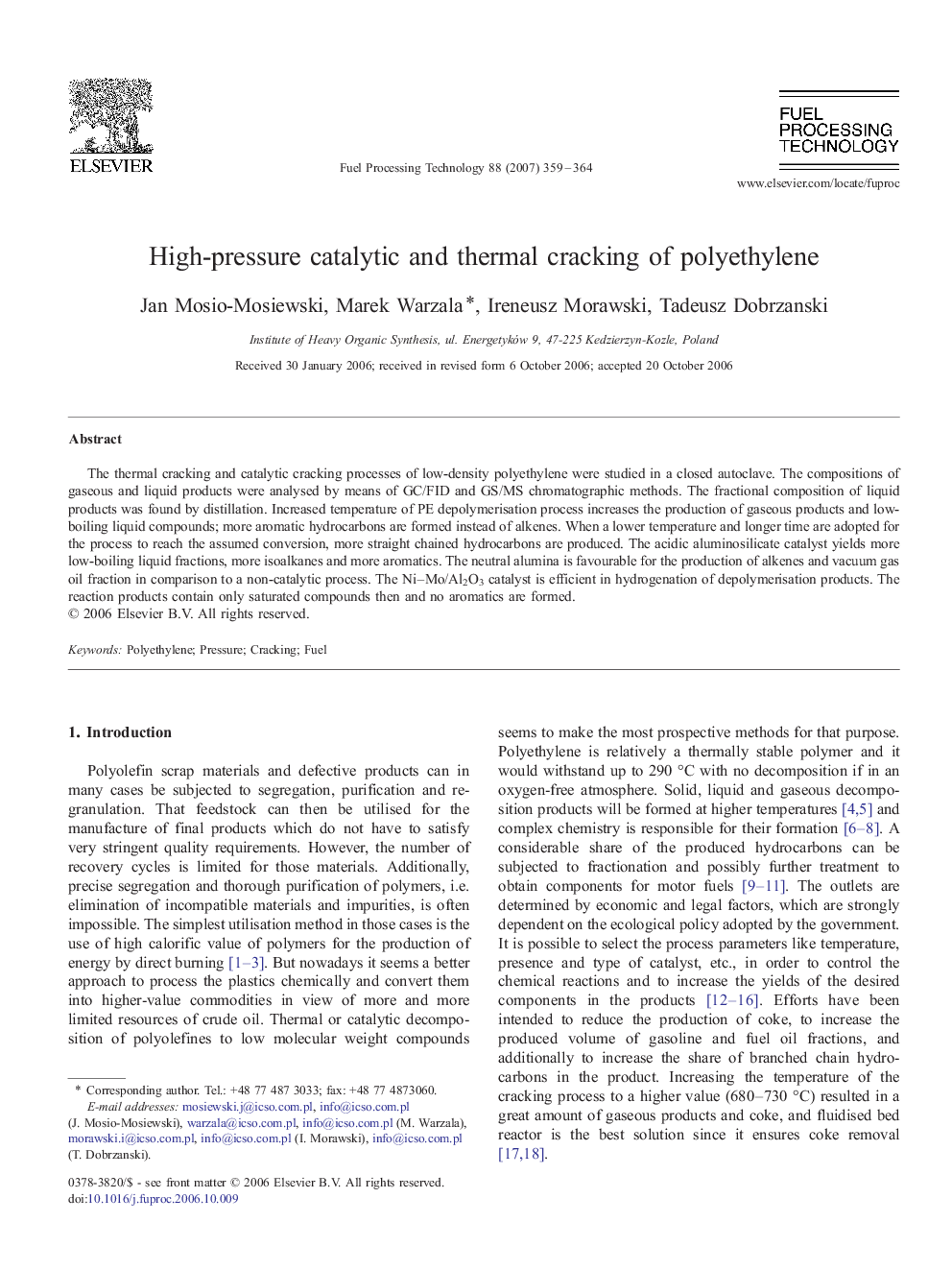| Article ID | Journal | Published Year | Pages | File Type |
|---|---|---|---|---|
| 211525 | Fuel Processing Technology | 2007 | 6 Pages |
The thermal cracking and catalytic cracking processes of low-density polyethylene were studied in a closed autoclave. The compositions of gaseous and liquid products were analysed by means of GC/FID and GS/MS chromatographic methods. The fractional composition of liquid products was found by distillation. Increased temperature of PE depolymerisation process increases the production of gaseous products and low-boiling liquid compounds; more aromatic hydrocarbons are formed instead of alkenes. When a lower temperature and longer time are adopted for the process to reach the assumed conversion, more straight chained hydrocarbons are produced. The acidic aluminosilicate catalyst yields more low-boiling liquid fractions, more isoalkanes and more aromatics. The neutral alumina is favourable for the production of alkenes and vacuum gas oil fraction in comparison to a non-catalytic process. The Ni–Mo/Al2O3 catalyst is efficient in hydrogenation of depolymerisation products. The reaction products contain only saturated compounds then and no aromatics are formed.
